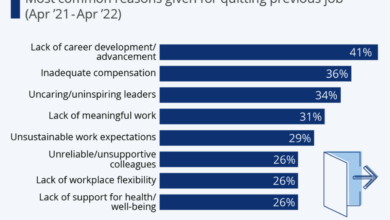
Even Interested Students Wonder: Is College Worth the Investment?
Even interested students wonder is college a worthwhile investment, and it’s a question that deserves serious consideration. The cost of higher education has skyrocketed in recent decades, leaving many questioning if the potential benefits outweigh the financial burden. This debate is particularly relevant today, as the job market continues to evolve at a rapid pace, driven by technological advancements and changing demands for specialized skills.
This article will delve into the multifaceted issue of college’s value, exploring both the traditional arguments for and against pursuing a degree. We’ll examine the historical trends in college tuition, the current job market landscape, and alternative paths to success.
Ultimately, the decision of whether or not to attend college is a personal one, but understanding the factors involved can help individuals make an informed choice that aligns with their goals and aspirations.
The Rising Cost of College

The cost of attending college has been steadily increasing for decades, making it a significant financial burden for many students and their families. This trend raises concerns about the accessibility and affordability of higher education, prompting many to question whether college is still a worthwhile investment.
Understanding the factors driving this cost increase is crucial for making informed decisions about pursuing higher education.
Historical Trend of College Tuition Increases
The cost of college has been rising significantly faster than inflation for several decades. This trend is evident when comparing tuition fees from past decades to the present. For instance, the average cost of tuition and fees at four-year public colleges in the 1980s was around $2,000 per year, while today it is closer to $10,000.
This represents a fivefold increase in cost, far exceeding the rate of inflation. Private colleges have experienced even more substantial increases, with average tuition exceeding $50,000 per year in some cases.
Impact of Inflation on College Costs
Inflation plays a significant role in the rising cost of college. As the prices of goods and services increase, colleges face higher costs for everything from utilities and salaries to textbooks and research equipment. These increased costs are often passed on to students in the form of higher tuition fees.
However, inflation alone cannot fully explain the dramatic rise in college costs. Other factors, such as reduced state funding and increased administrative expenses, also contribute to this trend.
It’s a question that’s been swirling in the minds of many, even those genuinely interested in higher education: is college still a worthwhile investment? The current economic climate, with its skyrocketing inflation, certainly doesn’t offer a reassuring answer. Just look at the recent news, like Best Buy’s quarterly sales drop as inflation-weary consumers pull back on spending , which paints a picture of cautious consumer behavior.
It’s clear that financial uncertainty is impacting decision-making, and that includes the decision to pursue a college degree.
Comparison of College Costs Across Decades
The following table provides a more detailed comparison of college costs across different decades, illustrating the magnitude of the increase:
| Year | Average Tuition and Fees (Public 4-year) | Average Tuition and Fees (Private 4-year) |
|---|---|---|
| 1980 | $2,000 | $5,000 |
| 1990 | $3,500 | $10,000 |
| 2000 | $4,500 | $20,000 |
| 2010 | $8,000 | $30,000 |
| 2020 | $10,000 | $50,000 |
Examples of Specific Colleges and Their Tuition Fees
The cost of college varies widely depending on the institution, location, and program of study. Here are a few examples of specific colleges and their tuition fees:
- Harvard University: $53,451 (2023-2024)
- Stanford University: $58,869 (2023-2024)
- University of California, Berkeley: $14,254 (2023-2024, in-state residents)
- University of Texas at Austin: $11,202 (2023-2024, in-state residents)
- New York University: $60,084 (2023-2024)
The Value of a College Degree
While the cost of college has been a significant concern, it’s crucial to consider the potential return on investment. A college degree can unlock a multitude of opportunities, leading to a more fulfilling and financially secure future.
It’s a question that plagues even the most enthusiastic students: is college truly worth the investment? While a traditional degree can open doors, there’s also the growing world of entrepreneurship, especially for those who’ve already experienced success in the corporate world.
Check out the 5 types of post exit entrepreneur to see how these individuals are shaping the future, perhaps even providing an alternative path for those questioning the value of a traditional education.
Salary Differences
The financial benefits of a college degree are undeniable. According to the U.S. Bureau of Labor Statistics, workers with a bachelor’s degree earn significantly more than those with only a high school diploma. In 2022, the median weekly earnings for workers with a bachelor’s degree were $1,362, compared to $839 for those with only a high school diploma.
This translates to an annual salary difference of approximately $45,000.
Long-Term Career Benefits
Beyond higher salaries, a college degree offers a range of long-term career benefits. A college education equips individuals with critical thinking skills, problem-solving abilities, and communication expertise, making them highly sought-after in the job market. It also opens doors to specialized fields and career paths that require advanced knowledge and training.
Earning Potential and Job Security
A college degree often translates to higher earning potential and increased job security. Individuals with a college education are generally more likely to be employed in higher-paying occupations and are less vulnerable to economic downturns. They also have access to a wider range of career opportunities and are better positioned to adapt to changing job market demands.
It’s a question that lingers in the minds of even the most eager students: is college truly worth the investment? The answer, of course, is complex and depends on a multitude of factors, including your chosen field of study and the specific job market you’re aiming for.
It’s also important to consider how hiring expectations differ across European countries, as you can read more about here. Ultimately, the decision of whether or not to pursue higher education is a personal one, but understanding the nuances of the job market can help you make a more informed choice.
Industries Valuing College Degrees
There are numerous industries where a college degree is highly valued. These include:
- Healthcare:Fields like medicine, nursing, and pharmacy require a bachelor’s degree or higher.
- Technology:Software development, data science, and cybersecurity often require a bachelor’s degree in computer science or a related field.
- Business and Finance:Roles in finance, accounting, and management typically require a bachelor’s degree in business administration or a related field.
- Education:Teaching positions at the elementary, middle, and high school levels generally require a bachelor’s degree in education or a related field.
The Changing Job Market
The job market is constantly evolving, and the rise of automation and technology has significantly impacted the types of skills and knowledge employers seek. This transformation presents both challenges and opportunities for individuals considering higher education.
The Impact of Automation and Technology
Automation and technological advancements are transforming various industries, leading to a shift in the demand for certain jobs. While some tasks are being automated, this trend also creates new opportunities in fields related to technology, data analysis, and automation itself.
The Increasing Demand for Specialized Skills and Knowledge
As the job market becomes more competitive, employers are increasingly seeking individuals with specialized skills and knowledge. This demand extends to a wide range of fields, including healthcare, engineering, and technology. A college degree often provides the foundation for acquiring these specialized skills.
Emerging Industries and Careers That Require a College Degree
Several emerging industries and careers require a college degree, offering promising job prospects for graduates. These include:
- Artificial Intelligence (AI) and Machine Learning:The demand for AI and machine learning professionals is booming as businesses increasingly rely on these technologies to improve efficiency and decision-making.
- Cybersecurity:With the growing threat of cyberattacks, cybersecurity professionals are in high demand to protect sensitive data and systems.
- Data Science and Analytics:Businesses are increasingly reliant on data to make informed decisions, leading to a surge in demand for data scientists and analysts.
- Renewable Energy:As the world transitions to renewable energy sources, there is a growing need for professionals in fields like solar and wind energy.
Companies That Prioritize Hiring College Graduates
Many companies prioritize hiring college graduates, recognizing the value of the knowledge and skills gained through higher education. Some notable examples include:
- Google:Google is known for its commitment to hiring graduates from top universities, particularly in fields like computer science and engineering.
- Amazon:Amazon, a leading e-commerce company, employs a large number of college graduates across various departments, including technology, logistics, and finance.
- Microsoft:Microsoft, a technology giant, prioritizes hiring graduates with strong technical skills and problem-solving abilities.
Alternative Paths to Success: Even Interested Students Wonder Is College A Worthwhile Investment
Not everyone is destined for a four-year college degree. There are many alternative paths to success, some of which may even be more fulfilling and rewarding than a traditional college route. This section explores the benefits of vocational training and apprenticeships, the potential for career advancement without a traditional college degree, and the role of experience and networking in career development.
Benefits of Vocational Training and Apprenticeships
Vocational training and apprenticeships offer practical skills and real-world experience, preparing individuals for specific careers. These programs are often offered by trade schools, community colleges, and employers.
- Hands-on learning:Vocational training emphasizes practical skills, allowing students to gain hands-on experience in their chosen field. This practical approach is valuable for many careers that require specific technical skills, such as plumbing, welding, or auto mechanics.
- Industry-specific knowledge:Vocational training programs are designed to meet the needs of specific industries. Students learn the latest technologies, tools, and techniques used in their chosen field, making them highly employable upon graduation.
- Potential for immediate employment:Many vocational training programs lead to immediate employment upon completion. This can be a significant advantage for individuals seeking to enter the workforce quickly and begin earning a living.
- Lower cost:Vocational training programs are often less expensive than traditional four-year college programs. This can make them a more affordable option for individuals with limited financial resources.
- Apprenticeship opportunities:Apprenticeships combine on-the-job training with classroom instruction, allowing individuals to learn from experienced professionals while earning a salary. This hands-on approach provides valuable experience and can lead to a career path within a specific company.
Career Advancement Without a Traditional College Degree
While a college degree can open doors to certain career paths, it’s not the only way to achieve success. Many individuals have achieved significant career advancement without a traditional college degree.
- Technical skills:Individuals with specialized technical skills are highly sought after in many industries. For example, a skilled software developer, electrician, or mechanic can command a high salary and advance their career without a traditional college degree.
- Entrepreneurship:Starting a business is another path to success that doesn’t require a college degree. Many successful entrepreneurs have built thriving businesses based on their skills, experience, and vision.
- Continuing education:Individuals can continue to learn and develop their skills through online courses, professional certifications, and workshops. This can help them advance their careers and stay competitive in the job market.
- Networking:Building strong professional relationships can open doors to career opportunities. Networking events, industry conferences, and online platforms can connect individuals with potential employers and mentors.
Examples of Successful Individuals Without a College Degree
Many successful individuals have achieved their goals without a traditional college degree.
- Bill Gates:The co-founder of Microsoft, Bill Gates dropped out of Harvard University to pursue his entrepreneurial ambitions. He went on to build one of the most successful technology companies in history.
- Steve Jobs:The co-founder of Apple, Steve Jobs also dropped out of college. He went on to revolutionize the personal computer industry and create iconic products like the iPhone and iPad.
- Oprah Winfrey:The media mogul and talk show host dropped out of Tennessee State University to pursue her career in broadcasting. She became one of the most influential and successful figures in American television.
The Role of Experience and Networking in Career Development
Experience and networking play crucial roles in career development, regardless of educational background.
- Experience:Gaining relevant work experience is essential for career advancement. Internships, volunteer work, and part-time jobs can provide valuable skills and insights into different industries.
- Networking:Building strong professional relationships can open doors to new opportunities. Attending industry events, joining professional organizations, and connecting with people on LinkedIn can help individuals build their network.
Personal Considerations
While the economic and societal benefits of a college degree are undeniable, it’s crucial to approach the decision of attending college with a personal lens. Weighing your individual circumstances, goals, and values is essential to ensure that a college education aligns with your aspirations and doesn’t create undue financial burden.
The Pros and Cons of Attending College
A thorough understanding of the advantages and disadvantages of pursuing higher education can help you make an informed decision. Consider the following table:
| Pros | Cons |
|---|---|
| Increased earning potential | High cost of tuition and living expenses |
| Greater job security and career advancement opportunities | Potential for student loan debt |
| Expanded knowledge and skillset | Time commitment and opportunity cost |
| Personal growth and development | Potential for academic pressure and stress |
| Networking opportunities and social connections | Not all degrees guarantee a return on investment |
Aligning Career Goals with Educational Choices
Choosing a major that aligns with your career aspirations is crucial. Research different fields, explore potential job opportunities, and consider your interests and skills.
“The best way to predict the future is to create it.”
Abraham Lincoln
Consider shadowing professionals in your chosen field, attending career fairs, and talking to college advisors to gain insights into specific careers and the educational paths they require.
The Impact of Student Debt on Future Financial Planning
Student loan debt can significantly impact your financial future. It’s essential to carefully consider your borrowing options, understand the terms of your loans, and develop a plan to manage your debt responsibly.
“The key to financial freedom is not to earn more, but to spend less.”
Dave Ramsey
Create a budget that accounts for your loan payments, explore income-driven repayment plans, and consider strategies like consolidating or refinancing your loans to potentially lower your interest rates.
Researching and Choosing the Right College, Even interested students wonder is college a worthwhile investment
The college you choose can significantly impact your educational experience and future prospects. It’s important to research different institutions, consider their academic programs, campus culture, and location.
“The best way to find yourself is to lose yourself in the service of something bigger than yourself.”
Mahatma Gandhi
Visit college campuses, talk to current students and faculty, and consider factors like class sizes, faculty-student ratios, and available resources.






